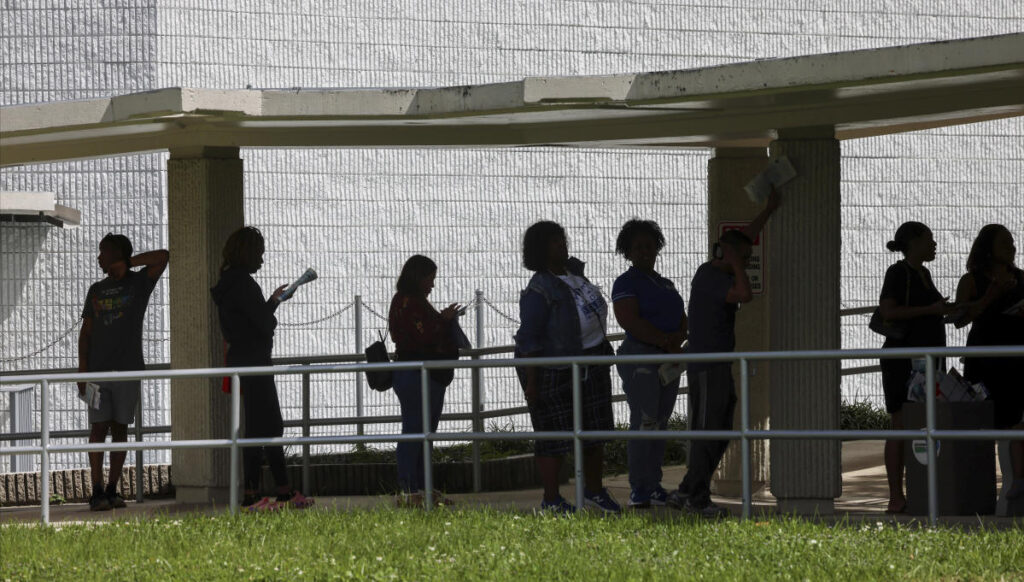The upcoming elections in Florida represent a significant test of the state’s political landscape, with high stakes for both Republicans and Democrats. Florida has transitioned from a competitive swing state to a Republican stronghold, particularly marked by Donald Trump’s narrow win in 2016 and then a larger margin in 2020. The most recent elections also saw Republican candidates sweep all five statewide office races by substantial margins. However, Democrats are attempting to leverage newly introduced constitutional amendments that address abortion rights and marijuana legalization, along with the high-profile campaign efforts of figures like Vice President Kamala Harris. These potential amendments have generated significant financial backing and advertising efforts from both sides, as each party aims to mobilize voters and influence the political outcome.
The focus of the election will largely revolve around the race for U.S. Sen. Rick Scott’s seat, being challenged by former Democratic Rep. Debbie Murcasel-Powell. Despite the presence of this significant Senate race, the high-profile abortion and marijuana ballot questions are capturing more media attention. Democratic leaders, like Party Chair Nikki Fried, view the success of these amendments as a potential victory regardless of the outcomes of the gubernatorial or Senate races. Fried highlights the recent challenges faced by Democrats in Florida, noting their previous losses yet expressing optimism about the possibility of the state being competitive for them again. The two proposed amendments require at least 60% voter approval to pass, indicating that achieving those numbers amidst Republican resistance will be daunting.
Political strategist Jamie Miller points out the difficulty of the amendments winning voter support, highlighting that while they may have popular backing, significant counter-campaigns can create skepticism among supporters. This aspect of political campaigning in Florida has become increasingly critical as Republican efforts against the amendments intensify. Miller also emphasizes that while there is strong motivation among Democrats to vote against their Republican counterparts, this may not translate into the kind of widespread support needed for their candidates to succeed. Given the current Republican advantage of one million voters in Florida, the Democrats’ path to victory is narrow and requires careful strategizing to overcome the existing political trends in the state.
Scott’s campaign stands out due to his previous electoral success, having won his gubernatorial elections with less than half of the votes. His previous narrow victory over Democratic Sen. Bill Nelson in 2018 signifies a changing political dynamic, as the landscape has shifted from a time when Democrats held a numerical edge over Republicans to the current situation. Scott has significantly funded his campaigns through personal wealth, something that his opponent, Murcasel-Powell, struggles to match, particularly with delayed support from national Democratic entities. The challenges Murcasel-Powell faces in gaining attention against the backdrop of a presidential election and heavily funded amendment campaigns illustrate the obstacles that Democrats must navigate in order to regain ground in the state.
Adding to the complexity of this election are Governor Ron DeSantis’s efforts against the proposed amendments. Although his re-election is not on the ballot, his vocal opposition and proactive measures, including the use of state agencies to combat the initiatives, signify the importance of these issues to Republican strategies. For instance, Florida currently has a six-week abortion ban, which would be challenged by the proposed amendment aiming to secure abortion rights up to the point of fetal viability. Similarly, the campaign for recreational marijuana legalization follows the successful approval of medical marijuana in 2016, with significant financial interests likely influencing voter sentiment and turnout.
Finally, while Florida’s congressional races remain largely uncompetitive, the election is set to introduce at least one new member to Congress, as the Republicans solidify their control. The focus for Democrats centers on flipping enough legislative seats to dismantle the Republican supermajority in both the House and the Senate. Among these targeted races is that of Republican Sen. Corey Simon, where civil rights lawyer Daryl Parks presents a formidable challenge, reflecting the evolving dynamics in Florida’s political scene. The outcome of these elections will not only affect the immediate political landscape but may also foreshadow broader trends that could influence future contests in this pivotal state.

